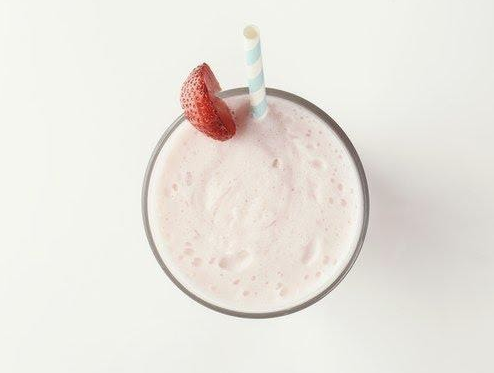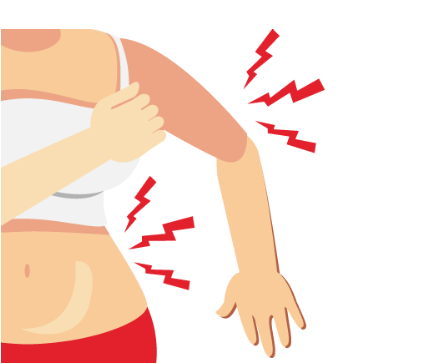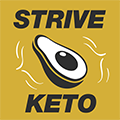Whey Protein and Keto

Many people want to know if whey protein is keto-friendly. This is a controversial topic because some people claim that it is, while others think whey protein will kick you out of ketosis. Whatever your stance is on this topic, you should scientific research that supports the latter position. Specifically, whey protein can cause significant insulin spikes in your body.
These research studies show that whey protein causes an increase in serum levels of leucine, isoleucine and valine, and it also causes increases in the insulin hormone glucose-dependent insulinotropic polypeptide (GIP) and glucagon-like peptide 1 (GLP-1). The study compared insulin levels after ingesting whey, white bread, and glucose. After 15 and 30 minutes, those that ingested whey had insulin levels nearly double that of those that ingested white bread and glucose!
Besides the insulin spikes, those on a keto diet should be wary of the high amounts of protein that these whey protein supplements contain. Keto requires that you maintain a moderate level of protein in your diet, because consuming too much protein will cause the excess protein to be converted to glucose, resulting in a loss of the state of ketosis. That’s why you should be either consuming all your protein through natural foods, or choosing a protein supplement that won’t spike your insulin levels and which contains a proper amount of protein, such as this special keto meal replacement smoothie: striveketo.com/strawberry-shake
So what is an appropriate amount of protein? Take your body weight in kilograms, and this number in grams is the amount of protein that you should be consuming each day. Besides containing too much protein and spiking your insulin levels, some of these whey protein supplements also contain other sneaky chemicals and ingredients that may wreak havoc on your diet. That’s why it’s important to examine the ingredients in your supplements and also do your research on whether a particular product is good for your diet and your overall health.
Choosing supplement products can be tricky, because many of these supplements are created in the same labs that manufacture all kinds of other supplements, so traces of different ingredients can be mixed together, giving you no idea of what you’re actually taking. We hear these stories in the news all the time of professional athletes testing positive for banned substances after taking tainted supplements. The bottom line is to be more cautious and judicious when choosing supplements. Try to buy from companies with good reputations and only buy products that you truly trust; and always inspect the ingredients carefully.
Alcohol and Keto

Often people who are new to keto want to know whether alcohol is allowed on the keto diet. The answer is some types of alcohols are not strictly forbidden, while others are. There are also some drawbacks to drinking even the types of alcohol that are allowed on keto.
In general, alcohol is not good for your health, even red wine, because it speeds up aging and causes inflammation. Also one of the main drawbacks of drinking alcohol on the keto diet is that the body will burn the alcohol in your system before it burns fat, so it will delay fat burn until the alcohol is depleted from your system. This will not cause major issues unless you are a frequent or heavy drinker, which can cause significant delays of fat burning by your body.
So what types of alcohols are allowed on keto? First of all, beer and flavored alcohol contain carbs and sugar that can immediately knock you out of ketosis, so make sure you abstain from those. However, clear hard liquors such as vodka are the types of alcohol that are safest for keto, especially the ones with no carbs and sugar and very little calories. One thing to be aware of though is that some people have issues with all types of alcohol, even straight liquor and dry wine. At 7 calories per gram, it’s never a good idea to drink to excess, even the types of alcohol that have no carbs.
Other negative effects that alcohol can have on keto is influencing your mental state in a negative way, which can make it easy to stray off your diet. It can cause some people to lose focus and purpose, which may result in binging on carbs and disrupting their macros. Alcohol also hits the system harder on keto because there is an absence of carbs to absorb it, so you might want to drink less than usual once you get started on keto.
Keto Side Effects and How to Cure Them

When people who are new to the keto diet start it for the first time, they may experience various side effects that might make them confused and wonder what’s going on. However, fear not, because most of these side effects are common and can be cured with simple solutions.
Keto Flu
One of the common side effects that people new to keto experience is what some call the keto flu, because they experience symptoms similar to that of the flu. These symptoms may include headaches, feeling tired, nausea, and lack of energy. These symptoms normally manifest because on the keto diet, the body is transitioning from sugar burning to fat burning for energy. During this process, the body dumps its glycogen stores and also salt, water and electrolytes.
So flu-like symptoms are caused by dehydration and deficiency of salt and electrolytes.
To battle these side effects, you just need to drink plenty of fluids, replenish your salt and electrolytes, and consume more fat. Eating more fat will keep your energy levels up and help you feel satiated. To get more electrolytes in your system, we recommend a Keto Electrolyte Formula that is specifically designed for the keto diet: striveketo.com/electrolytes
Muscle Cramps
Another common side effect of keto is muscle cramping, especially leg cramps. Muscle cramping can occur when there is an imbalance of minerals and electrolytes or when you are dehydrated. When starting on the keto diet and eliminating carbs from your body, it produces less insulin, which normally processes these carbs. When there is less insulin in your system, your kidneys will absorb less sodium, which will get released in your urine and cause a sodium deficiency and electrolyte imbalance.
Simply, electrolytes are minerals with positive charges that are found in all bodily fluids, and they work to push fluid throughout your cells to keep you hydrated. They are involved in several bodily functions, mainly those involving muscles and nerves. When you experience an electrolyte imbalance, it usually involves magnesium, potassium, and sodium. A deficiency of these electrolytes in your body is a sure-fire way of inducing muscle cramps.
Another possible cause of cramping can be dehydration. When you transition into ketosis, your body first uses up all its glycogen stores before switching to fat burning for energy. Glycogen is attached to water in the body, so when glycogen stores are used up, excess water is freed and leaves the body through urination, which can result in dehydration.
Other possible causes of leg cramps can be ingesting too much caffeine, exercising without hydrating, and being overly sedentary. Caffeine is a diuretic and may contribute to dehydration, and it can also stimulate muscles to contract. When it comes to exercise, sweating in large amounts can cause significant loss of water and electrolytes from your body, which need to be replenished or can cause cramping. Also, when you sit or don’t move for long periods of time, your muscles can tighten up and cause cramps, so be more physically active and keep those muscles moving.
So how do you cure these muscle and leg cramps? The easiest first step is to drink more water and stay fully hydrated throughout the day. How much water should you be drinking? Take your body weight in pounds and divide it by two. This is the number of ounces of water you should be drinking throughout the day to maintain healthy levels of hydration. If you drink coffee, add another cup of water to your daily water requirements to offset the dehydrating effects of the coffee. Also drink plenty of water when you exercise.
Next, you want to make sure you are getting enough electrolytes, especially sodium, magnesium and potassium, to avoid being deficient. You can add Himalayan salt to your diet to get more sodium and eat more healthy foods that are good sources of magnesium and potassium. The easiest way to ensure you are getting enough electrolytes is though electrolyte supplements, such as this special keto electrolyte supplement: striveketo.com/electrolytes
Constipation
When transition to a low-carb diet, constipation is a possible side effect caused by your digestive system needing to adapt to your new diet. Good-quality fiber is a solution to constipation because it keeps the intestines moving. However, many sources of fiber are high in carbs, and the keto diet avoids these types of high-carb sources of fiber. Therefore, you need to be more proactive in finding low-carb options of fiber, which include non-starchy vegetables and ground flaxseed.
Another common cause of constipation is dehydration, which causes the body to absorb more water from the colon and digested food becomes dryer and harder. This means you should drink more water and keep fully hydrated to avoid these side effects.
Another solution to constipation for those on keto is taking MCT oil. Not only does it help people avoid constipation, MCT oil is also important for helping your body burn more fat, lowering insulin and cholesterol levels, providing more energy, and also keeping your brain healthier.
Heart Palpitations
When transitioning to keto, it’s not uncommon to experience a slightly elevated heart rate or a more pronounced heartbeat. One common cause is dehydration and a lack of salt, which decreases the amount of circulating fluid in the bloodstream and forces the heart to pump harder to circulate blood.
The cure for this symptom is simple: Just drink more water and get more salt in your diet. Also making sure you’re getting enough electrolytes everyday can help improve your heart and circulatory functions, which you can get from keto electrolyte supplements.
So all in all, most of these common symptoms for those new to keto can be cured by simply drinking more water to stay fully hydrated and replenishing your salt and electrolyte levels. Because it can take weeks for your body to fully adapt to ketosis, you may experience residual symptoms until your body adjusts to its new metabolic state.
For those of you on medication for certain conditions such as diabetes or high blood pressure, you may experience symptoms caused by the keto diet changing your physical condition. For example, those with diabetes may experience a lowering of blood sugar levels, which may mean that their current dosage of medication is too high and needs to be adjusted. Similarly for those with high blood pressure may experience a lowering of their blood pressure levels and may need to have their medication dosage adjusted accordingly.
